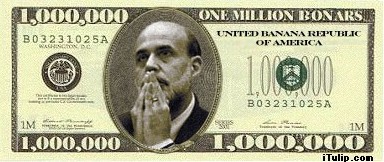Re: What's Ailing the Dollar? Part II: Current Account Balance
i read that this morning - time horizon is too short though. i don't think the dollar's trip will be straight down without any bumps up. i care more about capital preservation for the next 6-12 months, but i would like to get some interest while sleeping at night. i don't want to have to buy a bunch of CDs if I don't have to.
i read that this morning - time horizon is too short though. i don't think the dollar's trip will be straight down without any bumps up. i care more about capital preservation for the next 6-12 months, but i would like to get some interest while sleeping at night. i don't want to have to buy a bunch of CDs if I don't have to.




Comment